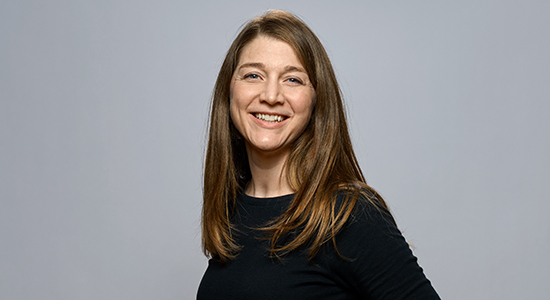Grevengoed Group – Lipid Metabolism
The Grevengoed group focuses on determining biological functions of different fats, such as omega-3 fatty acids, and their metabolites in cardiometabolic disease. Our work spans biochemistry and physiology to understand the necessity and utility of fatty metabolites in health and disease, such as atherosclerosis and fatty liver disease.

Dietary fat is a common target of obesity or heart disease treatment, with some fats being classified as healthy and others as unhealthy. Of course, the solution to cardiometabolic disease is not so simple as consuming only ‘good’ fat. Fats of all types are used for many functions in the body, including energy storage, structure of cells, and signaling from one cell to another, and both ‘good’ and ‘bad’ fats have important functions in these. By regulating the types of lipids present in a cell or tissue, we can alter the level of inflammation, energy state, and membrane properties, thus greatly changing the function of the cell.
Our group’s research focus is on different types of fat and effects of metabolic dysregulation on health and disease, with current focuses on atherosclerosis and non-alcoholic fatty liver disease. We use biochemistry to study how molecules interact and move, as well as physiology to understand the functions in mouse models and humans. In this way, we can understand how different fats elicit biological effects and provide the basic biology for future evidence-based treatments of cardiometabolic disease.
- Metabolomics
- Mouse models of metabolic dysfunction
- Obesity and diabetes
- Lipid absorption
- Liver health
- Cell culture (primary hepatocytes, cell lines)
- Enzymatic activity assays
- Meal tests in humans
The Grevengoed group is looking for motivated students, and we encourage all interested students (bachelor or masters level) to conduct their thesis projects in our lab.
The Grevengoed group has a strong profile in in vivo mouse models of metabolic dysfunction, e.g. obesity, diabetes and non-alcoholic fatty liver disease/steatohepatitis (NAFLD/NASH). We investigate dysmetabolism using specific diets and genetic alterations of the mice. We additionally conduct in vitro research using primary liver cells and cell lines and metabolomic analyses. Read more about our current research projects in the “Current research projects” section below. Projects can be adapted in case you have a specific interest or desire to learn a specific method.
The Grevengoed group offers an international and productive environment. The atmosphere is supportive and motivated. We are located in building 12, floor 2, with other research groups focused on metabolism and endocrinology.
To learn more, please contact Trisha Grevengoed (grevengoed@sund.ku.dk).
Please note: Students are not required to hold a FELASA certificate to conduct supervised animal work, but it is useful in starting your own project as well as contributing to other lab members’ projects.
FEAST
Our previous findings showed that N-acyl taurines (NATs) containing an omega-3 fatty acid, DHA, lowered lipid absorption in mice, which protected the mice from development of fatty liver. Reducing lipid absorption can also lower calorie intake as well as enhance GLP-1 secretion so we aim to translate the mouse data to humans in collaboration with Filip Knop at Gentofte Hospital. In this double-blinded, cross-over trial, we will determine if the DHA-NAT can lower plasma triglycerides, a major risk factor for cardiovascular disease, and increase plasma GLP-1, a hormone that can regulate appetite and obesity.
Omega-3 fatty acids in N-acyl taurines and atherosclerosis
Building on our prior data that omega-3 fatty acid containing N-acyl taurines (DHA-NAT) lowers plasma and liver triglyceride, we will use atherosclerosis-prone mice (Ldlr-/-) to determine if DHA-NAT can protect mice from development of atherosclerotic plaques, which constitute a large risk of cardiovascular disease and death in humans. This work will help us understand the mechanisms of how fishy omega-3 fatty acids improve heart health.
Omega-6 fatty acids in N-acyl taurines and non-alcoholic fatty liver disease/steatohepatitis (NAFLD/NASH)
The omega-6 fatty acid, arachidonic acid (ARA) is generally considered pro-inflammatory because many of its downstream products promote inflammation. This project investigates how elevating a novel ARA product, ARA-NAT, changes whole-body inflammation as well as prevents development of NAFLD and NASH, the fastest growing cause of liver cancer.
N-acyl taurine biosynthesis and transport
A genetic knock in mouse model specifically unable to breakdown N-acyl taurines has a distinct plasma N-acyl taurine profile enriched in unsaturated fatty acids omega-6 and omega-3 fatty acids. In addition, these unsaturated N-acyl taurines and others are secreted in the bile rather than urine. The unsaturated N-acyl taurines appear to be produced in the liver, whereas other plasma N-acyl taurines may be of extra-hepatic origin. This project aims to identify the hepatic N-acyl taurine synthase(s) and how circulating N-acyl taurines transport into the liver.
Omega-3 fatty acids in mitochondrial lipids
In heart and muscle, mitochondria are vital for providing enough ATP for cellular energy demands. These mitochondria contain a specific lipid profile that is necessary for their function. In Barth syndrome, a rare X-linked disease, a protein called tafazzin is deficient, and the affected boys have altered mitochondrial lipids, muscle weakness, and heart failure. Using a mouse model of tafazzin deficiency in muscle, we are examining the effect of omega-3 fatty acid supplementation on mitochondrial lipids, structure, and function as well as exercise capacity.
Group Leader
Trisha Grevengoed
Assistant Professor
Phone:+4535334583
grevengoed@sund.ku.dk
ORCID: 0000-0003-4433-3950
Group members
| Name | Title | Phone | |
|---|---|---|---|
| Katharina Barbara Küntzel | Postdoc | +4535325048 | |
| Katja Thorøe Michler Byrdal | Research Assistant | +4535335056 | |
| Samuel Addison Jack Trammell | Special Consultant | +4535335601 | |
| Trisha Jean Grevengoed | Associate Professor | +4535334583 |

